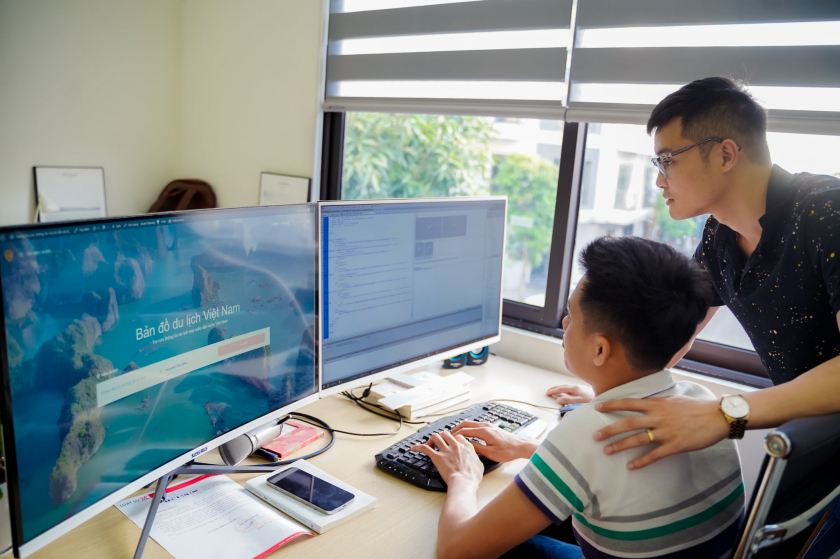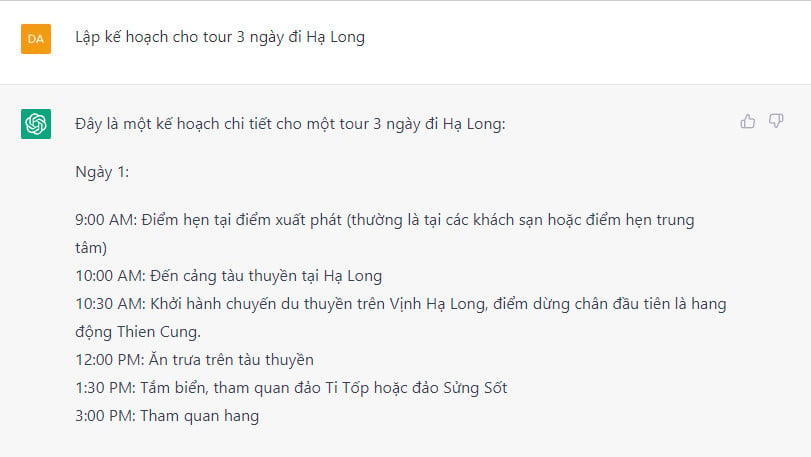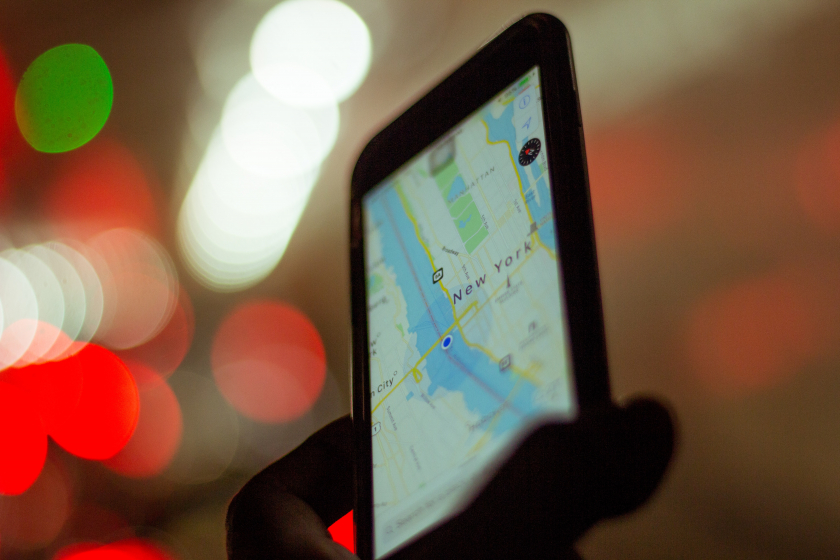In January 2007, the first iPhone, also known as the iPhone 2G, was released, revolutionizing the mobile phone industry. In May of the same year, a technology application that revolutionized the tourism industry was also announced: Google 360 Street View. With this application, users can sit at home and use their smartphones or computers to explore famous tourist destinations or places they want to visit with a 360-degree, realistic, sharp, and real-time view, provided that the location has been visited and filmed before.
After 15 years, an application predicted to revolutionize the tourism industry has emerged: ChatGPT. This artificial intelligence system collects data from various internet sources and then provides users with answers in the form of natural language processing. In the future, tourism consumers may need a reliable source of information before making purchases, instead of being overwhelmed by the sheer volume of information available on Google today.

How will ChatGPT change the tourism industry?
So, can ChatGPT change the tourism industry?
Trung Nguyen (33 years old, from Quang Ninh) is currently the CEO of ADVER media company. In 2021, he and his team founded TRIPMAP, a technology product supporting Vietnamese tourism, connecting tourists with local people. He shared: “Technology can completely replace human tasks in tourism. To date, many companies have developed software and applications for tour guiding, enhancing sightseeing experiences, customer care, hotel booking, flight booking, transportation, and travel guides.”
When asked about ChatGPT, he added: “Immediately after ChatGPT was announced, I had the opportunity to experience it and was full of praise. ChatGPT's technology is better and completely different from previous chatbots. This application can respond very appropriately to the context and provide quite accurate information based on the big data it learns.” So how can ChatGPT impact the tourism industry?

Trung Nguyen highly praised ChatGPT for its surprising intelligence and modernity.
ChatGPT assists users in answering questions and performing other tasks in text format. This application can be used to improve the traveler experience by providing helpful travel information and advice about destinations. It can even be used to promote tours. ChatGPT's ability to provide information quickly saves users time and effort in searching for travel information.
With its question-and-answer function, destinations will need to understand how algorithms suggest them to tourists. In the future, ChatGPT could potentially charge a fee to promote travel services as top-ranked, easily accessible information sources.

ChatGPT was asked to recommend restaurants in Hanoi.
Furthermore, ChatGPT also helps streamline tasks in the tourism industry such as providing information, financial planning, and tour planning. Thanks to its diverse data sources, the application can connect different industries such as culture, entertainment, and cuisine to create richer travel experiences. Simultaneously, language and cultural barriers are minimized and removed when customers want to find information about tourist destinations in different countries.
This helps optimize human resources in the tourism industry and provides many interesting suggestions. The drawback is that it can easily lead to formulaic content or outdated information, due to the limited time frame of AI knowledge (currently, data is only updated up to 2021).

ChatGPT when asked to plan a tour.
Thus, we can see that ChatGPT is gradually forming a question-and-answer habit with users. In the future, it has the potential to become a virtual assistant that anyone can turn to and rely on when traveling.
How does technology impact tourism?
According to Mr. Trung, many prominent tourist destinations in Vietnam have adopted technology to replace human labor in various processes. For example, electronic tickets reduce the need for ticket checkers, allowing for better traffic control, and automated multilingual audio guides reduce the number of tour guides. In modern hotels, technology that allows guests to open rooms via smartphone reduces the number of receptionists. Sometimes, guests arrive at the hotel without needing to interact with anyone. The travel experience is becoming increasingly faster, more convenient, and more diverse.
Many travelers have also become accustomed to using advanced digital services, which has increased the demand for travel apps. In a 2021 GlobalDate survey of users worldwide, 66% of respondents said they were influenced by the level of technological advancement of a product or service before making a purchase decision.

Travel apps on mobile phones have become an indispensable part of the lives of travel enthusiasts.
Two groups are influenced by the modernity of services when it comes to spending money. These are Millennials, with 74% of respondents saying yes, and Generation Z, with 72% sharing the same view. Both groups grew up in the digital age. This demonstrates that the importance of travel apps will continue to increase, as these generations will become the most important consumer group for travel and tourism companies in the future.
Some popular travel apps on the App Store include Airbnb, Booking.com, TripAdvisor, Expedia, Skyscanner, and Kayak. Almost all of them help consumers streamline their travel tasks or research itineraries and destinations before making a purchase.

However, human factors still make a difference in the tourism industry.
Furthermore, there are still many aspects in the tourism industry where technology cannot replace humans. AI needs to learn from humans before it can classify destinations; it cannot naturally know the exact names and information of destinations. Therefore, input data from service providers and experienced travelers remains extremely important. Unexplored new destinations will still need creative individuals who dare to take the first step.
Emotional factors also need to be given more attention by tour operators. Using automated "technological guides" that provide commentary when scanning QR codes only partially assists users in finding additional information. A remote support staff member or an experienced, cheerful, and passionate tour guide accompanying the group will undoubtedly enhance the travel experience for tourists significantly.
We can't know what the future holds, but preparation and adaptation are always wise choices. And it's quite possible this travel article is being written using ChatGPT.

 VI
VI EN
EN




































